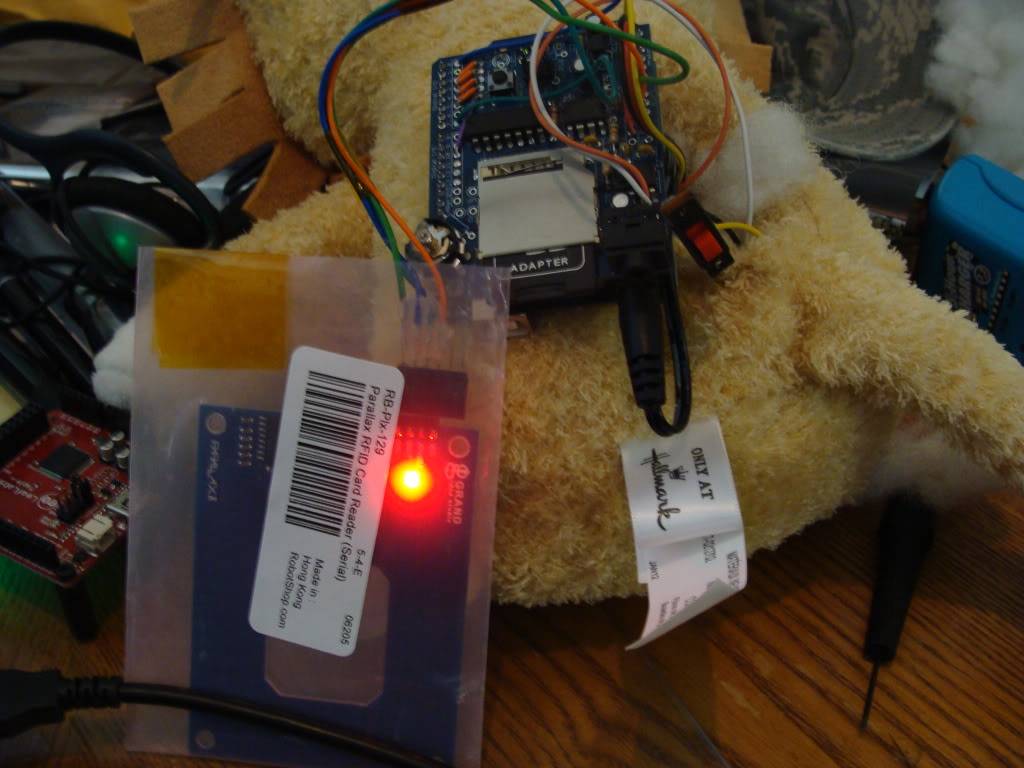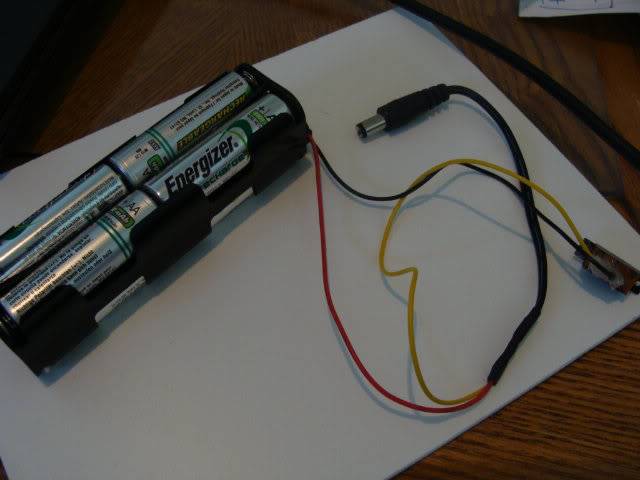This is a copy of the RFID bear on Make. I have however added a few new features in the code like a ram check, a random file player and a sound response. The random file player I adds another dimension to the character. If you would like to make you own it is very easy. This project was made for my wife as she wanted a talking stuffed animal. If you are not interested in the behavour of the stuffed animal it is easly changable with a few code modifications. Also do take a look at the final source code it may help you in some other projects you are already currently working on.
Parts list:
A stuffed animal
Ardunio Uno
6-8 cell AA battery holder
serial parallax RFID reader
Adafruit Wave Shield
8 ohm speaker
RFID tags
1 gig SD memory card
sound sensor
Most up to date code and more info.
A guide to making one yourself: http://makeprojects.com/Project/Charlie ... ear/1411/1
A updated library for the wav shield: http://www.ladyada.net/make/waveshield/download.html
Final video link http://s155.photobucket.com/albums/s291/ollopat/?action=view¤t=MOV04020.mp4
The code below works with random files named with like "1.wav" "2.wav".... the wav is already part of the file name so when viewing in windows it will be "1" "2"... all the way to 200. Though this value it easily changed in the code. For the back of Sunny I took him to a local seamstress that sewed on Velcro strips that allowed me to throw in all of the electronics. As for power I'm using rechargeable AA's to run him at the moment which seem to be doing well. If you have any questions please ask below. The code includes the required lines for the RFID and they are tested well the reader I had died on me so I will try and load a new video up with him scanning some tags.
This is a picture of the back of sunny showing the on/off switch sticking out of the velcro lined compartment.
Most of the internal electronics out for testing.
A more recent change was that I had a old Spark Fun breakout board for a Mems microphone which allowed me to make sunny respond to different noise levels 5 atm. So if you clap your hands to loud next to his ears he will say "ouch Sunny's ears hurt now". I made a video of him responding to noise I created below. As well as the updated code.
Updated battery pack. from a six cell pack to a bettery longer lasting 8 cell pack.
If you have any questions about the build or the code Id be more then happy to help.
Reads RFID tags then plays .wav files, also uses a mic to hear loud nosies.
- Actuators / output devices: WaV shield
- CPU: Arduino Uno R3
- Power source: 8 1.2v Ni-MH 2000Mah (9.6v)
- Sensors / input devices: Sound, RFID reader
- Target environment: indoors
This is a companion discussion topic for the original entry at https://community.robotshop.com/robots/show/sunny-the-rfid-lion





